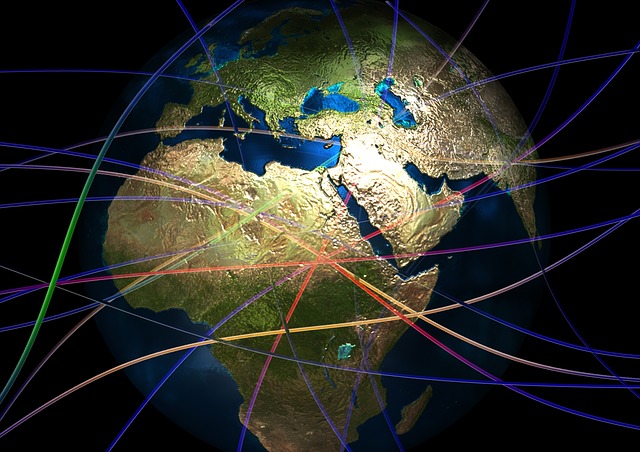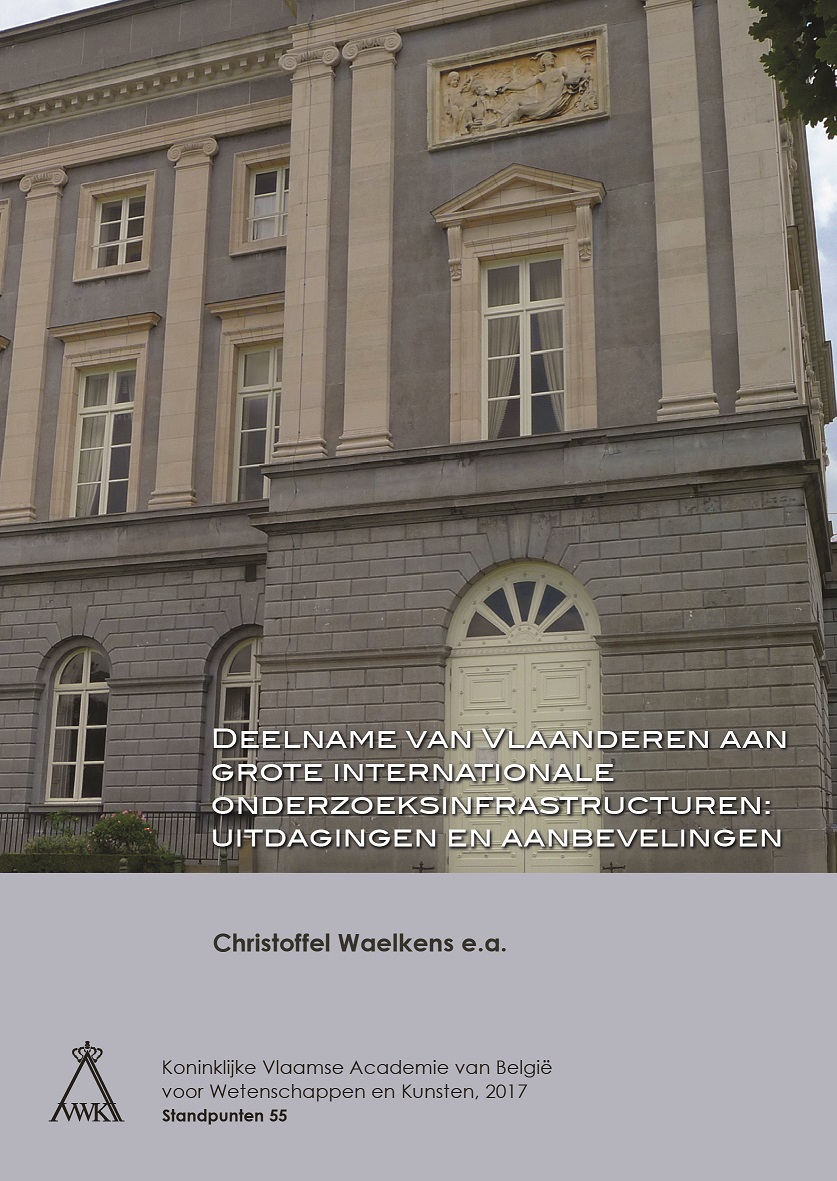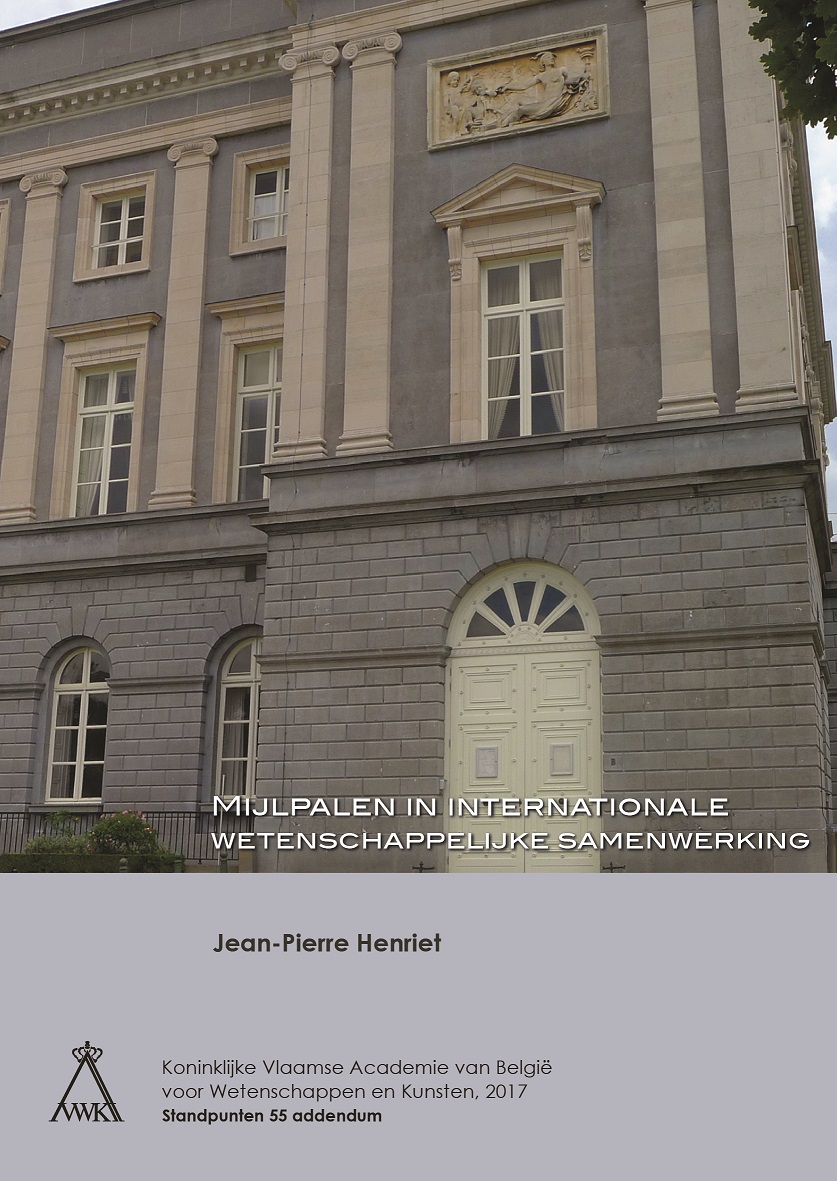Flemish participation in international research structures

International collaborative ventures around shared major research
structures — some of which were launched before moves began to be made
towards European economic and political unification — have enabled
Europe to be the world-beater in a range of fundamental sciences that it
is today. In many cases, Belgium was one of the countries that took the
initiative to set up these structures. In the present day, these
international research structures offer Flemish researchers a wealth of
opportunities to set the pace internationally in key scientific and
technological domains.
Since the developments in European
scientific research structures have substantially run in parallel with
developments in the European Union (EU), the landscape of these major
research structures is varied. By the same token, however, it is
coherent, in the sense that the various models employed have each
demonstrated their virtue as regards efficiency. On the one hand, the EU
maintains constructive relations with intergovernmental organisations
such as CERN, ESO, ESA, EMBL and ESRF. On the other hand, the EU also
plays a constructive role in developing new projects, through working
out a shared structural model and through coordinating the
prioritisation of that model via the European Strategy Forum on Research
Infrastructures (ESFRI) Roadmap.
Although the EU — with its
framework programmes and by means of the European Research Council (ERC)
— is playing an ever greater role in fostering scientific research in
Europe, that research has in the case of Belgium largely become a matter
for the individual federal entities (and more particularly for the
Regions). Flemish researchers benefit from the energising role played by
the Flemish Government in this domain. However, efficiency in the use of
international research structures, whose administration is done at the
federal level, requires coordination between the Regions by means of
consultation between them (“interfederal consultation”), a coordination
in which both the world of science and policymakers ought to be involved.
Ultimately,
the key metric of projects carried out as part of international research
structures is the quality of the research proposed and carried out in
them: the potential to break new ground, both in a fundamental and a
technological sense. The opportunities offered by these research
structures, then, pose challenges, not only for scientists, but also for
member states’ economic policies.
The main aim of this
position paper is to clarify how the various international research
structures are transformational for the practice of science in Europe,
in Belgium and in Flanders. Recommendations are offered to optimise the
scientific leveraging of these research structures, as a contribution to
innovation in Flanders. Initiatives under the European Framework
Programme, such as JRI and ERA-NET, have no bearing on this paper.
Recommendations
- Researchers themselves possess the requisite expertise and have a great deal of responsibility as regards the scientific leveraging of international research structures. Accordingly, it is vital that they be closely involved in an interactive process of policymaking, at all stages.
- The consultative process between Belgium’s federal entities aimed at prioritising projects within ESFRI must be fostered. The various roadmaps in existence have been developed at Community level and it is desirable that these should result in a Belgium-wide ESFRI roadmap in short order
- Consultation between the federal entities is required on the international research structures’ policy, which is administered at federal level. Exchanging good practices between the Communities is a course of action that suggests itself.
- If a space agency shared between the federal entities is to be effective, it ought to have its own scientific advisory structure to take policy decisions on scientific priorities.
- The Flemish and Belgian contributions to international research structures ought primarily to be evaluated on the criterion of how much they push the boundaries of science. It is by means of those structures that we are able to play a significant role in innovative scientific research; one that we cannot play as a region or a country on our own.
- The scientific and technological return obtained on international research facilities largely depends on how involved researchers are in particular experiments. Consequently, it is essential that initiatives be taken to boost the contributions made by Flemish teams to the development of competitive instruments. The FWO’s (Research Foundation – Flanders) Big Science programme fits the bill and is deserving of support and extension.
-
It would be desirable that for the purposes of their doctoral courses
in STEM subjects, Flemish universities collaborate regarding lecture
content on “Science with International Research Infrastructures”.
Available documents
Author
-
Christoffel Waelkens
Co-author
-
Conny Aerts
-
Yvan Bruynseraede
-
Reinhart Ceulemans
-
Martine De Mazière
-
Kris Heyde
-
Dirk Inzé
-
Alexander Sevrin
-
Dirk Thys van den Audenaerde
-
Walter Van Doninck
-
Paul Van Houtte
-
Irina Veretennicoff
Author
-
Jean-Pierre Henriet



